
If the following events occurred during the last presidential administration, there would be widespread condemnation from leading academic medical voices. Instead, the silence is deafening. Consider the timeline of boosters, the massive White House Pressure behind boosters and the open safety question:
In early April 2021, Albert Bourla, Pfizer’s CEO was quoted as saying boosters will be necessary within 12 months.

Immediately there was push back from Fauci, and other government officials that evidence was needed prior to such an announcement.

In July 2021, Bourla specified that his company would seek FDA authorization for boosters in August.

There again was pushback from senior officials, and a few days later, there was a private meeting between Pfizer executives & senior scientists part of the administration
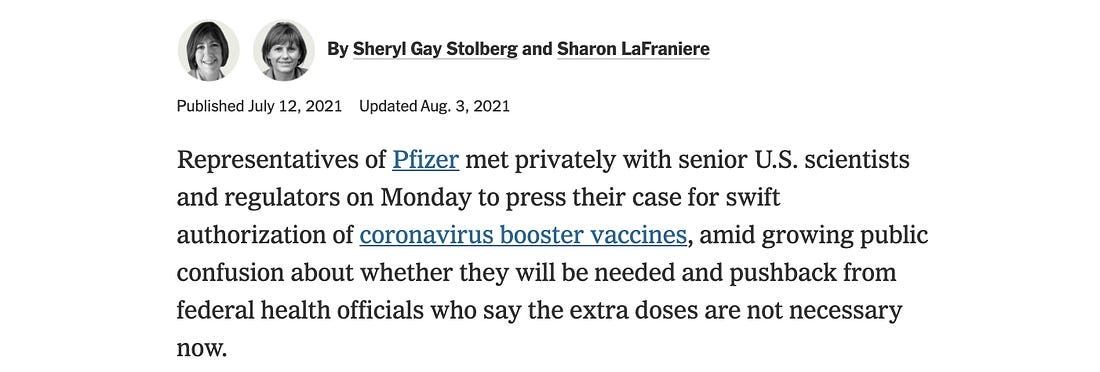
Shortly thereafter, the White House launched a media campaign pushing for boosters. (We all remember the Sunday show bonanza). The White House decided the deadline would be Sept 20.

On Sept 1, 2021, it was reported that Marion Gruber and Philip Krause, two long-time officials in the FDA’s office of vaccine products, and the Director and Deputy Director, would resign.

Multiple news outlets reported that this decision, after decades working at FDA, was due to the fact that the white house had launched a media campaign promising American’s boosters for all by the end of the month.
This decision was coercive to the employees of the FDA who could no longer consider the application impartially, as they faced strong political pressure to authorize.
The two senior FDA scientists joined others in a Lancet paper arguing why boosters were not supported by solid science, to which Fauci was critical.

Yet, based on this controversy, the White House was advised to walk back their plan for boosters.

The advisory committee to the FDA is held, but the committee does not sate the White House. They vote for a smaller proposal of boosters in older people and select high-risk populations— not boosters for all Americans.

The FDA can authorize boosters, but the CDC’s ACIP provides more tailored recommendations. That group was reluctant to recommend boosters for younger people— even those at high risk due to occupation. (Note: this is because as you are younger and healthier, the benefit/ harm balance is more uncertain, more below)
Yet, the CDC director, a White House Appointee, overrode that decision!
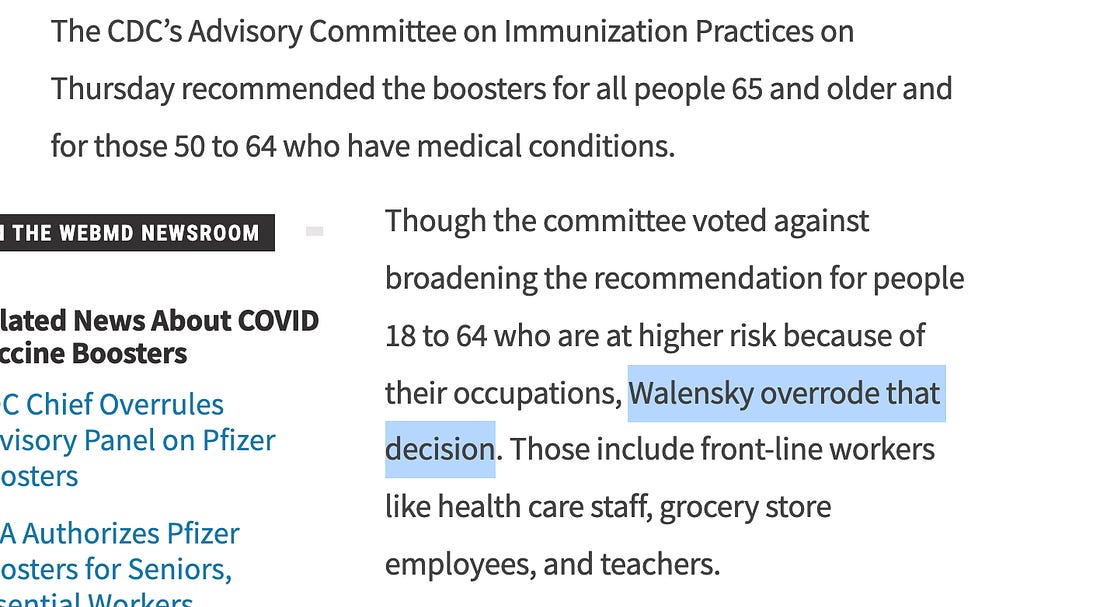
In November 2021, the FDA, without the influence of Gruber and Krause, moved to approve boosters for all >18 without advisory committee.
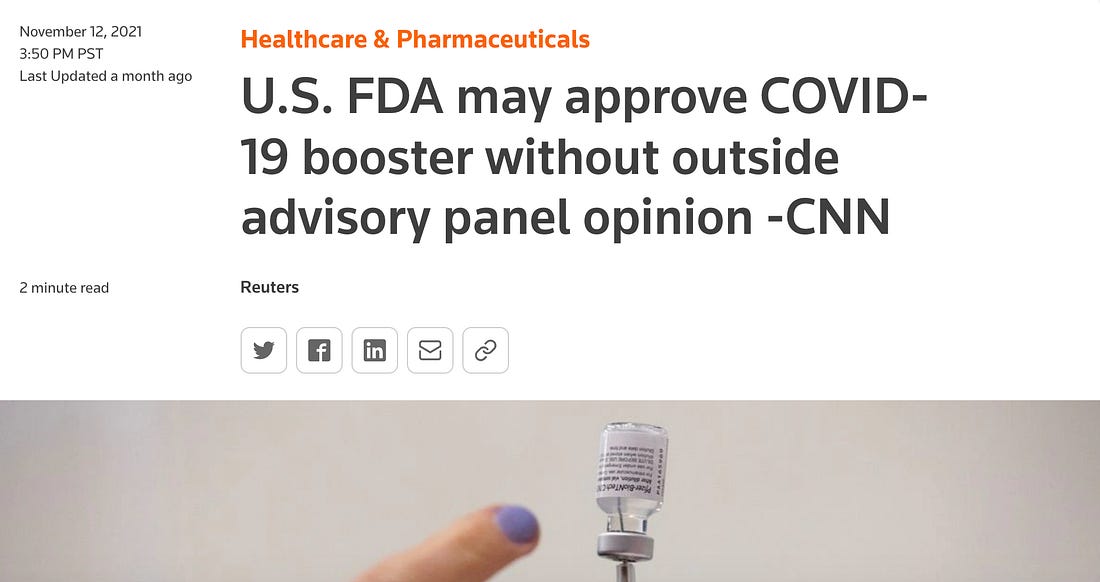
On Nov 19, the CDC held an advisory meeting of ACIP to tailor recommendations and:
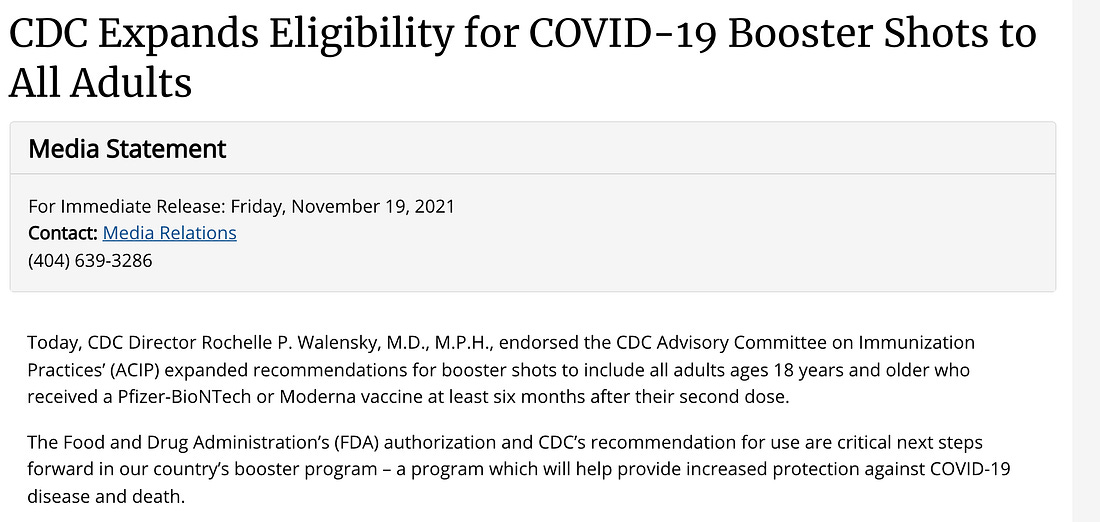
Paul Offit (a Member of FDA vaccine advisory committee, but not ACIP) and, Marion Gruber and Philip Krause (the two officials who resigned) wrote a stinging rebuke in the Washington Post, critical of the decision
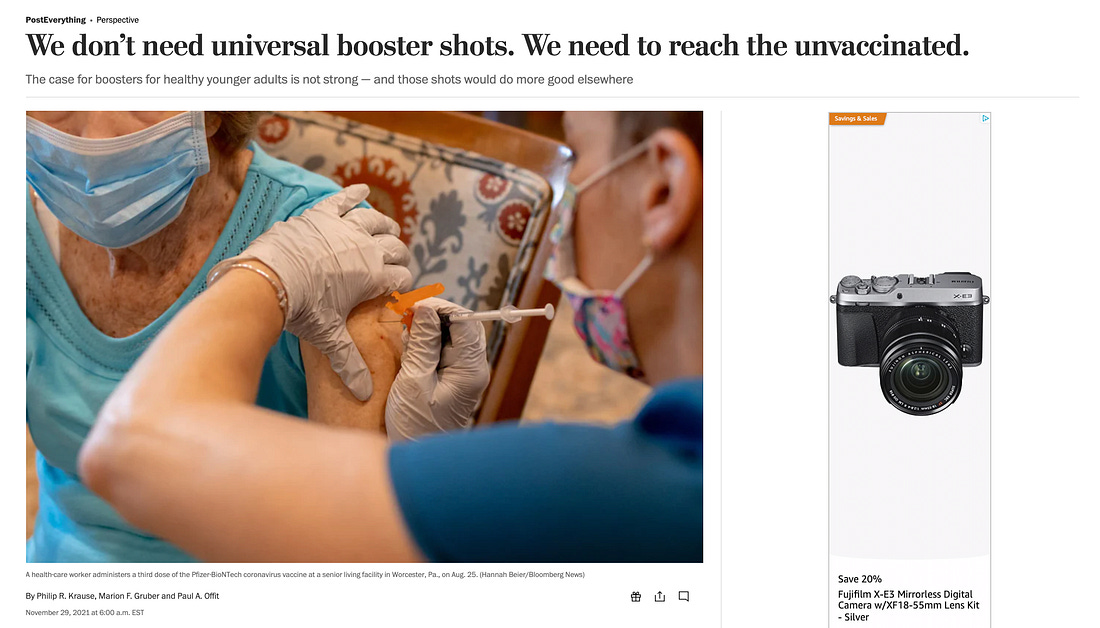
In December, this time without any advisory committee (neither VRBAC nor ACIP), the FDA expanded boosters again to 16 and 17-year-olds with scant data.
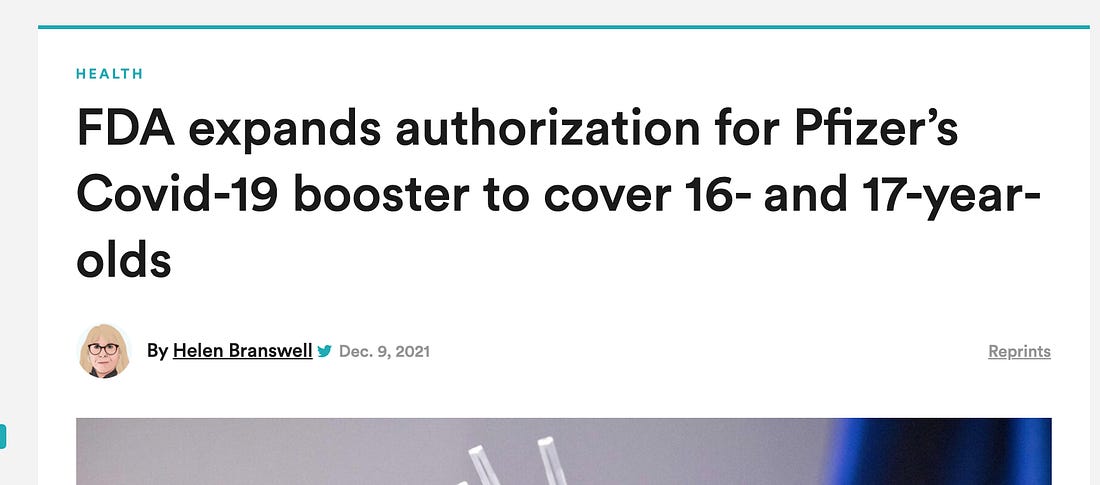
Philip Krause (the resigned Deputy Director) and Luciana Boro (former FDA senior scientist) penned a blistering op-ed in dissent in WaPo.
Meanwhile, while this was happening:
- Mounting evidence showed myocarditis is far more common than initially thought.
- Estimates from Ontario, Canada, Israel and other locations show rates as frequent as 1 in 3 to 6k. The FDA confirms this with an Optum analysis.
- Myocarditis affects men > women
- The highest risk age is 12-40 with 16-24 the peak demographic
- Moderna has higher risks than Pfizer
- Several European nations suspend Moderna in the young
- Data from Ontario shows that greater time between is associated with less myocarditis
- Safety experts, such as Walid Gelad, follow this issue with expert precision
What does all this mean?
There is little doubt that the risk-benefit profile of a dose 3 is likely to be favorable in older individuals and those with comorbidities or who are immunocompromised. There is also no doubt that the risk/benefit profile is entirely uncertain in younger individuals.
A thin, healthy 16 to 40-year-old man with no medical problems has something to gain and something to lose from taking a booster. The potential benefit is a short-term reduction in mild symptomatic disease (that’s known with some confidence). The uncertain benefit is whether there is a reduction in severe covid or hospitalization in this age group. At the same time, there is something to lose, a 3rd dose could precipitate myocarditis. Myocarditis, like all AEs, falls across a distribution. Many events will be mild, and most may self resolve, but some will not be mild, as the nature of idiosyncratic adverse events, and some may lead to long-term issues.
In regulatory science, the bar to debut products in healthy young people is very high. We do not promote mass campaigns without knowing with some confidence the benefits outweigh the risks. In a pandemic, it is reasonable to have a more permissive standard, but we cannot actually recommend vaccination to any person if there is a net health harm in that cohort.
For boys/men 16-40, there is massive uncertainty whether or not the third dose will confer net benefit, and that is not suitable for regulatory science. This is why the top 2 vaccine experts at FDA resigned, and why they keep writing op-eds.
Meanwhile, Twitter experts engage in propaganda campaigns. The principal ways they lie are the following: they never present myocarditis data by age and sex, but lump together all people (this dilutes the safety signal). They assert that the virus is always more likely to cause myocarditis than the vaccine (this lie has been contradicted by UK data for dose 2 Moderna). They do not seem to understand that the upper bound reduction in severe disease may diminish with each additional dose (i.e.) less and less myocarditis is enough to offset the potential benefit.
Finally, the White House is not an impartial agency. The white house is facing plummeting approval ratings, supply chain issues, and inflation. COVID19 case counts hurt their political prospects, but myocarditis does not. They are in no position to adjudicate which is worse and where the balance tips. Somehow, we understood that the last president should not decide when vaccines were approved. Why is it hard to understand that this president should not decide when boosters are mandated?
Fear is a powerful drug, and it blurs your vision. When you are afraid you cannot see clearly. Approving a vaccination scheme that turns out to, on average, harm boys or men of a certain age would be a catastrophic blunder. Confidence in vaccination will reach new lows, and vaccines as a culture war issue will intensify. America may not survive it. The 2 officials were right to resign. I would not want this on my watch.
Republished from the author’s Substack.

